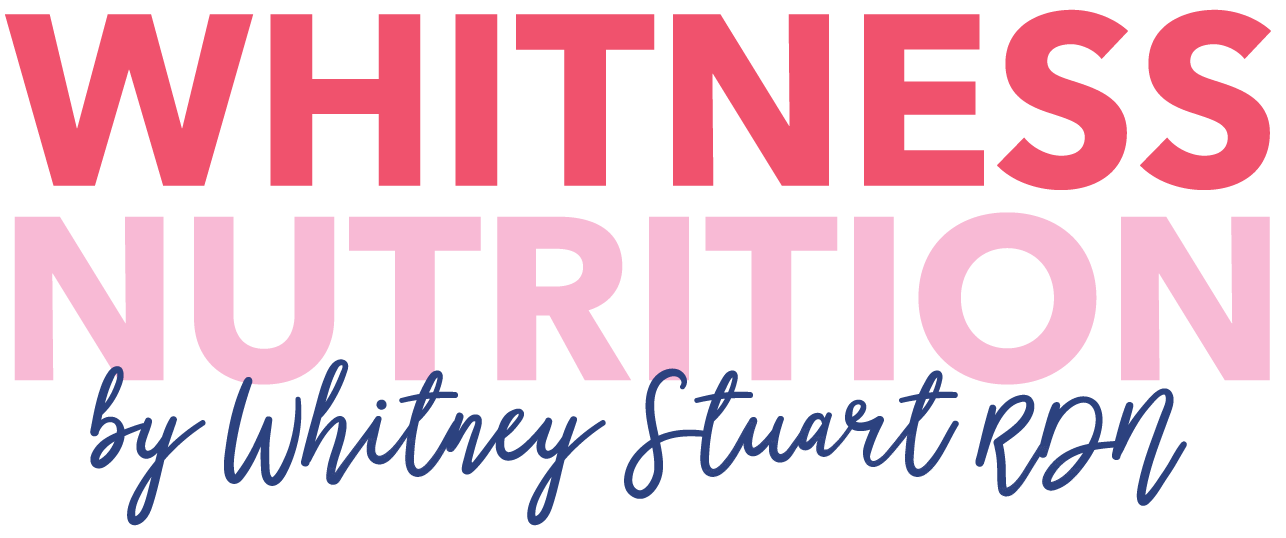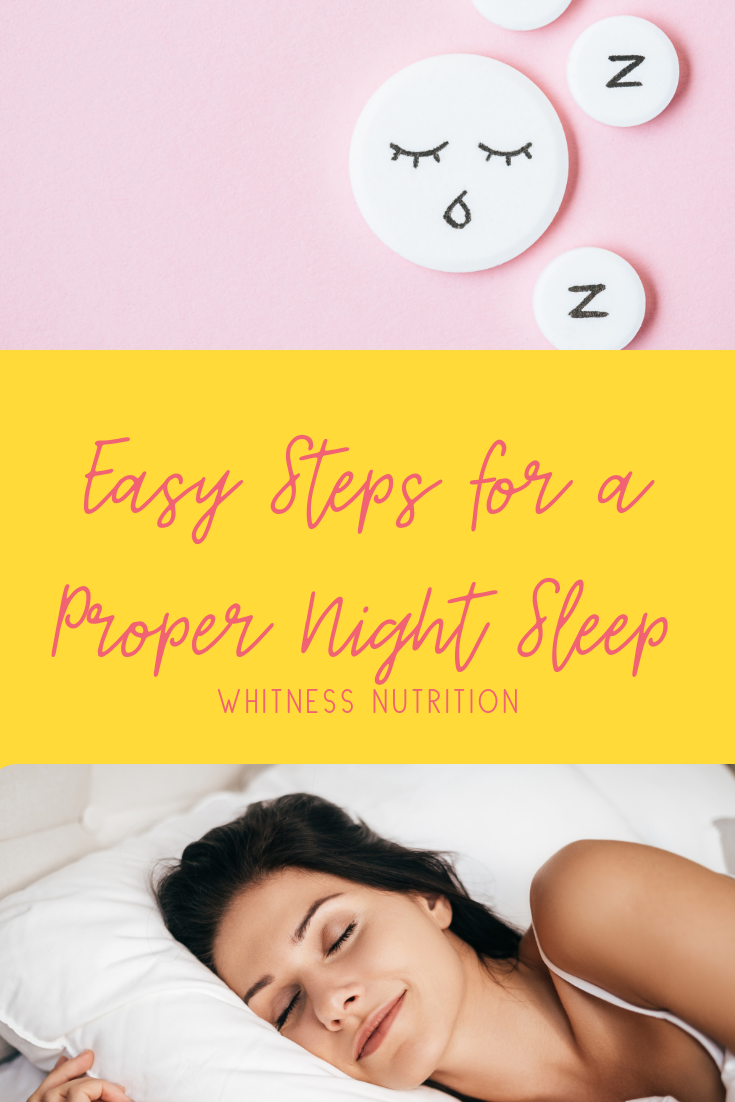Easy Steps for a Proper Night’s Sleep
A common thread in my clinic? Sleeplessness. Patients and providers alike. If there is anything we all need, it is quality sleep. That 7-8 hours of uninterrupted rest with solid dreams. Although the research varies, most individuals require a minimum of 7 hours for full restoration each night. Regardless of the hours you need to feel your best self, there is no denying the fact that the quality of your sleep is important.
It can be overwhelming to improve individualized sleep hygiene and stick to those habits. From melatonin supplements, to weighted blankets, or even blackout curtains; it can be exhausting (pun intended) to find improvement. Today, because holistic lifestyle management requires assessing every aspect of your health, I want to share eight easy ways to improve the quality of your sleep. Use these simple steps to improve your rest, recovery & optimal functioning.
Eight Actions for a Better Night Sleep 
Avoid a fourth meal
First, eating right before bed can lead to indigestion and heartburn, causing a disrupted night sleep. Try to consume your last meal 2 hours before bed. This allows enough time for your body to digest and absorb some of your meal. The small salty snack right before bed can end up disrupting a night’s worth of rest.
Sugary Sleeplessness
There’s nothing wrong with enjoying dessert! But, avoid high carb and sugar meals right before bedtime to ensure a solid sleep cycle. High sugar, high saturated fat and high carb meals have been shown to decrease the deep-sleep wave cycles. These deep-sleep wave cycles are important for a regulated metabolism and immunity. Avoiding sugar before bed can strengthen your overall immune system; the late night ice cream or bowl of sugary cereal won’t be worth it.
Acid All Night
Acidic foods close to bedtime increase risk of heartburn and upset stomach. Both of these conditions can cause a disruptive night of sleep and decrease the amount of time our body has to rejuvenate. Avoid foods such as grapefruit, tomatoes or spicy sauces. Try consuming these foods earlier in the day, instead!
Avoid electronics right before bed
The blue lights found in electronics disrupt the body’s natural circadian rhythm. Blue-lights reduce or delay the natural production of melatonin, which will decrease feelings of sleepiness. This causes your neurological clock to go a little haywire and falling asleep is more difficult. I know that it is unreasonable to suggest your whole bedroom to be a technology free zone, but I highly recommend seeing your bed itself as a “no screen zone”. Make your best a blue-light free cloud for you to rest on.
A pillow for every personality

Is your bedroom a safe haven? Investing in a quality supportive mattress, soft pillows and blankets can be essential to a comfortable night of rest. Investing in items that make your bed and bedroom the perfect environment for a solid night of sleep can be a game changer. Consider cooling sheets (I finally upgraded to one’s from Parachute!), a soft blanket for colder nights, and light bulbs with a warm hue. Perhaps, adding a bedside candle to create a soothing aroma to your evening routine. Create a space in your room that feels both comfortable and peaceful.
Maintain a sleep, or bedtime, routine
Going to bed and rising around the same time each day keep our body’s natural sleep cycle on routine. This allows for consistency in sleep habits. Naturally, it would be hard to be in bed exactly at 9 p.m. everyday, and wake up at 7 a.m. everyday, but try to avoid variations between 30 minutes for at least five of your weekdays. Overall, patients sleep better when they maintain a similar routine on the weekend.
Dedicate to getting a solid 7-8 hours of sleep
Is it even possible to be successful? Work backwards and then allow for some downtime! Creating a nighttime routine was one of my best habits from 2020. I enjoy a cup of chamomile tea and reading for ten minutes. Getting the adequate amount of sleep will allow the body to energize and rejuvenate. The body needs 7-8 hours of sleep to completely cycle through the 5 stages of the sleep cycle (REM sleep).
Incorporate Natural Sleep aid; Like PROPER

When lifestyle interventions fail, supplement! If you’ve been eyeing Benadryl, consider a cleaner sleep aid. Proper is an evidence-backed, sleep solution that offers a personalized, integrative approach to sleep-aid. Proper helps with sleep quality, as well.
Most sleep aids contain antihistamines (Examples include: Benadryl/ZzzQui) that knock you out but do not actually help with deep sleep / quality of sleep.
It is safe to take Proper as a long term sleep solution and has clinical support behind it’s ingredients. This isn’t a quick fix; the characteristics of the supplement work to repair the fundamentals behind your sleep and provide quality, long-term sleep health. The different supplements Proper offers are customized for your individual sleep needs, and don’t cause that day-after drowsiness that most sleep supplements can cause.
Proper’s sleep supplements are based on their Core formulation containing Sensoril® Ashwagandha, GABA, Venetron®, and Valerian root extract – all of which have been scientifically proven to cause sleep to come easier and quicker, as well as maintain sleep through the night. The Core Sleep supplements are natural, as well as non-GMO, sugar-free and free of artificial fillers.
Adding Proper sleep supplementation into your routine may provide a better quality and quantity of sleep. You can try out all 5 formulas with the Discovery Experience and receive a personalized sleep action plan!
Sources:
This blog post was sponsored by Proper through the creation of a thoughtful partnership with the intention of educating the masses on wholesome health concepts. Whitness Nutrition takes every partnership seriously and Whitney upholds her role of #honestinfluencer to a high standard. Never hesitate to reach out with comments, questions, or concerns.





Would you consider adding the guidelines around alcohol (stop at least 4 hours before bed, suppresses REM sleep [Sleep Foundation) and caffeine (stop at least 6 hours before bed, suppresses adenosine[JCSM]) as well as they are pretty strong and common disruptors?
Sleep is a passion of mine after reading ‘Why We Sleep’.
Absolutely! These are so key!